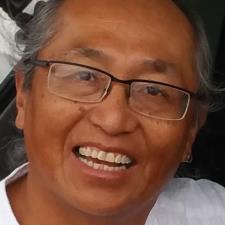
Jon G. answered • 11/03/17
Tutor
4.8
(38)
Patient knowledgeable STEM educator/former healthcare practitioner
Hi Serenity from Rome, GA...hope you have a great day at school.
Glad you contacted Wyzant with your post...I am here to help.
I am going to give you some topics to entertain and an example as a way of comparing and contrasting, which would be 'perhaps extra credit' as you try to address this question
- As Switzerland is a federal democracy[if you don't know what this means, perhaps you could make sure that you understand that because it helps to understand how the laws, which govern the people are established] it is a predominantly homogeneous society(another word to make sure you understand) and for the most part a majority of the country is anglo, attend the same churches, and has been a sovereign country for quite sometime
- Switzerland, in its past has had some type of monarch as its leader, however, it is governed by elected leaders which form a parliament.
- They do have cantons, similar however not equivalent to our states.
- Now, the 4 languages spoken in Switzerland are French, German, Italian and Romanish. All but Romanish are given national recognition, even though it was a language spoken by the original inhabitants of the eventual country, which is now Switzerland.
- The other languages are the languages of foreign invaders, conquers and armed aggressors to the original inhabitants of the area.
- The problems Switzerland faces are some of the same issues America may face if certain elements of our population push/insist that a specific language be recognized as the 'official language' of this country.
- By identifying a specific language as 'official' it presumes the others are inferior. So how does a country accommodate a multilingual population, when each has specific prejudices, which do have legitimate cultural and heritage influences?
- Obviously, a segment of the population will be marginalized and those in political power will work toward the interests of their electorate. If the political powers can find common ground, then perhaps some level of compromise can be accomplished to accommodate each of the language-based population.
- the fact that Switzerland is surrounded by other different language speaking countries, they might see that recognition of having a diverse language base is beneficial for the country as a whole.
- Problems arise when there is not consenses or collective understanding. This will lead to groups being marginalized, demonized, and eventually, discriminated against. To prevent this from occurring, equal recognitions and acceptance would be the answer political leaders should work toward.
- Here is a very much current day example of this issue here in the US. Here in the 47th state of the United States of America, New Mexico, the Native American people, of which are presented by the 19 Pueblo tribes and 2 other non-Pueblo tribes, were speaking a variety of languages even before the incursion/invasion of the Spanish into New Mexico. There are 5 distinct languages spoken by the 19 Pueblo tribes alone. There were speaking other tribes languages as they were trading and living alongside each other. In addition, they were trading with Native people from Northern Mexico and probably spoke some of their languages.
- After 1582, with the invasion/colonization but the Spanish, many of the Native Americans learned and spoke Spanish.
- When the US acquired NM in 1848 and the American came to colonized NM, the Pueblo people learned and spoke American English as well.
- NM has always been a multi-cultural, multi-lingual state. A state, a country, a civilization can include a diverse culture and diverse language base. What needs to be kept in mind is that it requires law makers to not work toward making laws placing one language over another. To accommodate diverse languages, requires acceptance and tolerance.
Contact me on Wyzant if you need further assistance.




